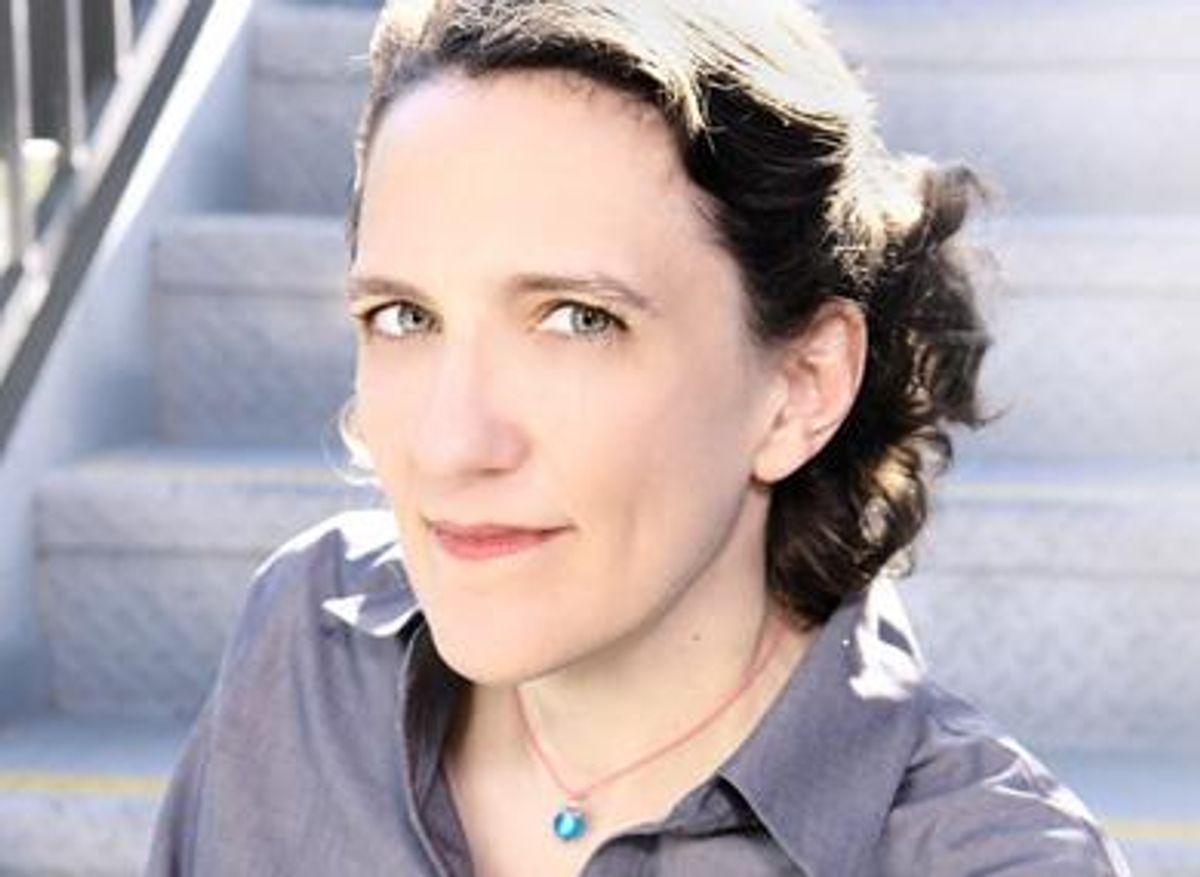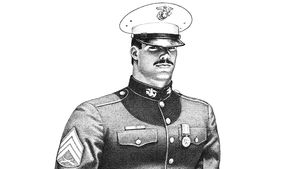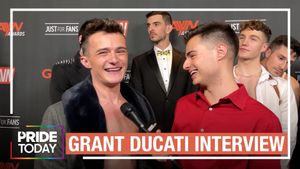Television writer Jane Espenson isn't gay, she just writes that way. As sweet and funny as she is prolific, Espenson has put her highly individual stamp on shows known as touchstones to LGBT audiences: Buffy the Vampire Slayer, Angel, Firefly, The O.C., Gilmore Girls, Dollhouse, Battlestar Galactica, Caprica, Game of Thrones, and Torchwood: Miracle Day. Espenson was also a writer for the last season of Ellen (the out season), and her latest gay-related project is Husbands, a web sitcom about the marriage between a gay athlete and a flamboyant actor. She's also infinitely busy as a co-executive producer and writer for ABC's new Once Upon a Time, airing Sundays at 8 p.m., that features a young woman stumbling upon fairy tale characters living in the here and now. Espenson recently shared her insights on writing in a man's world and filled us in on possibly the most interesting aspect of her varied working life -- she came up with the name for Zima.
The Advocate: You've written for and produced science-fiction shows that have been embraced by men and women, gay and straight (not to mention critics). Is it a conscious effort of yours to make your shows expansive and accessible?
Espenson: Yes, when I've been in the position to make something accessible, I do so as vigorously as I can. I try to write and cast roles with an eye toward diversity of all kinds. There's a phrase, "hard to cast," that, when said of an actor, means that someone is of a type that no one is writing for. And when said of a role, it means that the role is of type where there aren't many working actors who fit it. I love the idea of making those two categories find each other. And if we can't write diversity into sci-fi, then what's the point? You don't create new worlds to give them all the same limits of the old ones.
There's an assumption that writers' rooms, especially those of sci-fi shows, are very male-centric. True?
I think you've phrased that exactly right - it's an assumption. In my experience, it's always been the writers' rooms of comedies that have been male-centric. Dramas, including sci-fi dramas, seem to be to be much more integrated. Original Trek had DC Fontana, for goodness sake, and there are certainly lots of female writers now who either are working on genre shows currently or who have in the past. Even just on shows I've worked on -- top of my head -- Marti Noxon and Rebecca Kirshner from Buffy, Amy Berg at Eureka, Doris Egan at Torchwood, Mo Tancharoan, Tracy Bellomo, Liz Craft and Sarah Fain from Dollhouse, Anne Cofell Saunders and Toni Graphia from Battlestar, and lots and lots more. It actually makes sense that sci-fi, which often builds on a philosophy of diversity, would be a leader in this way. The shows and movies in which women are unambiguous leaders are often sci-fi, so it makes sense that there are women who write these kinds of heroes.
What makes good sci-fi?
Characters. Great characters and having something to say.
Have you introduced a gay theme, storyline, or character into a show because you thought it would add to the story?
Gay rights is a cause close to my heart and it shows up in my writing a lot. I wrote the Battlestar Galactica webisodes in which it was revealed that Lt. Gaeta was in a same-sex relationship. And I wrote a lot of material for the character of Sam Adama on Caprica, a great example of a character whose sexuality was made clear but was a non-issue for everyone around him. And I'm currently co-writing a web series called Husbands that's a mainstream comedy built around a gay marriage. Up until now newlywed comedy has been defined as involving one man and one woman, but things are changing. The whole series is up now at HusbandsTheSeries.com and people can go there to watch all 11 mini-episodes. It's been extremely well received and we're currently waiting to find out about funding for going forward with more content.
%%PULLQUOTE%%
Do you prefer writing or producing? What's your writing routine?
I've always said writing, absolutely, no question, but now that I'm doing the web series, I'm starting to actually understand the allure of producing. There's something very gratifying about saying "No. This one. Not that one," when it's in the service of really making something be the best version of what it can be. So that's cool, but writing still wins. There's nothing like the moment when you start hearing the characters talk.
My writing routine is often to write quickly for short periods of time. I call these writing sprints and I love announcing them on Twitter. I encourage others to go try writing (or whatever task they have) for intense non-interrupted sessions of a half-hour or an hour. People are amazed at what they get done. Of course, sometimes I have so much to do that I can't take those breaks between sprints and it turns into a sort of sprinting marathon. Which can be productive, but frakkin' exhausting.
I'm sure it's hard to choose, but what is your favorite show you've written?
I loved Buffy and I learned so much there. Method-wise, Battlestar was the mirror image of that show, and it taught me an entirely different way to achieve results. Torchwood is this other huge canvas and it's letting me apply what I learned, with finally a little measure of confidence. I couldn't possibly choose.
You wrote two episodes of Ellen during the show's final--and out--season, including two episodes that involved sex and Sarah McLachlan. What was that time like?
That was an amazing year. I worked for the unequaled Tim Doyle, who spoiled me for all other multicamera comedies. I have not worked on another one since then. He ran the room in a very enlightened way in which the writers were all given a chance to shine, no matter how our personal methods worked. But the best thing about that year was that we were telling stories that hadn't been told before. Will & Grace was just starting up that same year, as I recall, and they weren't telling dating stories yet. That was all us. So we got to write about Ellen's first dating and sex experiences in this new realm for her (and the audience). And we got to find all these new conflicts - Ellen doesn't know if she's got a girlfriend or a friend, Ellen is too embarrassed to ask for one bed in their hotel room, Ellen meets her current girlfriend's ex-girlfriend. Sitcoms have plowed the same fields for many decades and to walk out into a new meadow was amazing.
Please expound on your Zima connection?!
Oh my! That was my "funny story to tell at a meeting" when I was a very new writer in town. I never intended for it to become a public association with my name. In fact, I suspect I signed a piece of paper at that job saying I wouldn't talk about my work there. But oh well, just between me and you, Advocate. During college I worked part time at a company that named products and I was part of a team that submitted lists of suggested names for this new brewed drink. I was told that one of the angles they were exploring was to make it sound like a vodka. My roommate was studying Russian, so I looked in her textbook and pulled out words for things like "snow" and "winter." That's where I found Zima and put it on my list. For all I know, a half-dozen other employees did the same thing, but I know that was on my list. So, um, I named Zima. Sort of. I love that it remains a claim to fame even now! When I do something that pushes that off the bottom of the resume, that's when I've worked too long!



















































































